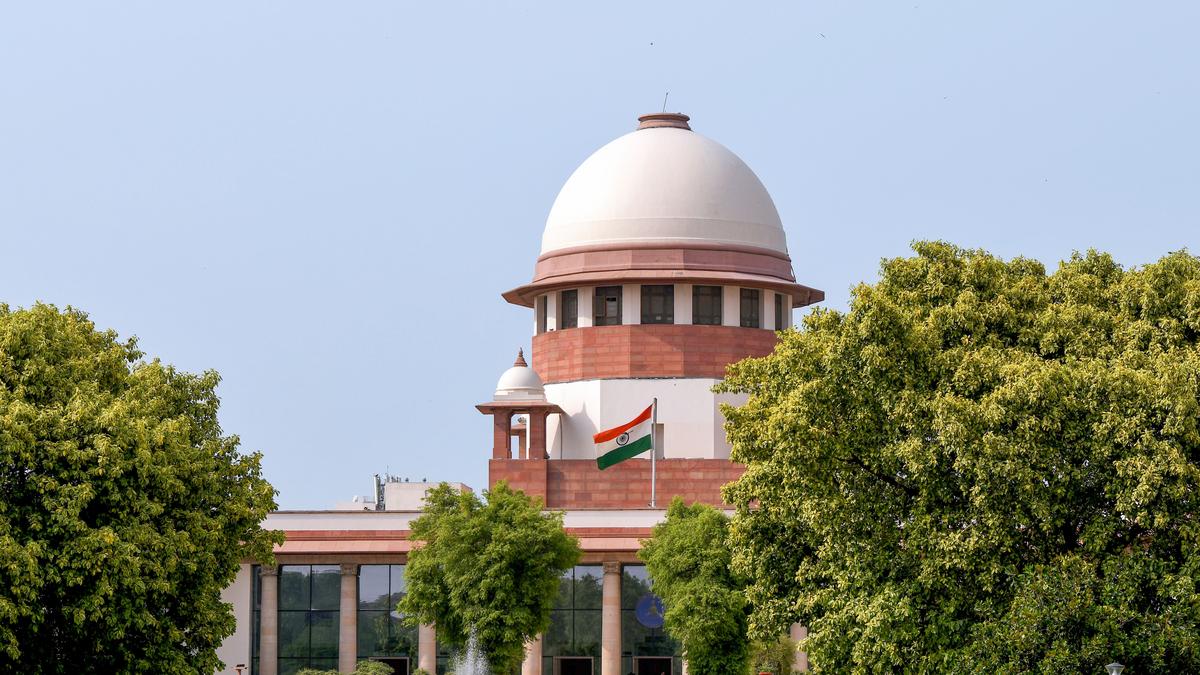Many petitions challenging the SIR in Bihar have been filed in the Supreme Court. File
| Photo Credit: ANI
A Supreme Court Bench of Justices Sudhanshu Dhulia and Joymalya Bagchi is scheduled on July 10 to hear arguments for and against the Special Intensive Revision (SIR) of the electoral roll under way in poll-bound Bihar and decide if the drive, initiated by the Election Commission of India, needs to be stayed for the time being.
Over 10 petitions filed by Opposition leaders, activists, NGOs and lawyers have been listed before the Bench, which had agreed on Monday to urgently list the case on July 10.
Follow Bihar voter list row hearing LIVE updates on July 10
The petitions listed for hearing, and challenging the SIR, include ones by Trinamool Congress MP Mahua Moitra, Congress leader K.C. Venugopal, Rashtriya Janata Dal MP Manoj Jha, activists Yogendra Yadav, Arshad Ajmal, NGOs Association for Democratic Reforms and People’s Union for Civil Liberties. The court has also listed a petition filed by advocate Ashwini Kumar Upadhyay supporting the SIR.
The petitions have argued that an interim order from the apex court staying the June 24 notification announcing the SIR was necessary as crores of voters, drawn from the poor and marginalised sections of the society, were put on a tight leash to produce documents to prove their domicile or face the prospect of disenfranchisement.

The petitioners said the last date for submission of the enumeration forms was July 25. Applicants’ names would not feature in the draft electoral roll to be published on August 1, 2025, if forms were not submitted in time.
The petitioners said the Election Commission must be made to explain the rationale behind the “ill-timed and hasty” manner of conducting the SIR exercise in Bihar. Mr. Jha has argued that the decision was taken by the poll body without prior consultation with political parties and would be employed to “justify aggressive and opaque revisions of electoral rolls that disproportionately target Muslim, Dalit and poor migrant communities”.
The petitioners contended that the SIR process violated the provisions of the Representation of the People Act, 1950 and Rule 21A of the Registration of Electors Rules, 1960. The petitioners variously argued that the SIR shifted the onus of being on the voters’ list from the State to the citizens.

Mr. Upadhyay, on the other hand, voted for periodic conduct of SIRs of electoral rolls across the country.
“The demography of 200 districts and 1,500 tehsils has changed after Independence due to massive illegal infiltration, deceitful religious conversion and population explosion. Demography is destiny, and dozens of districts have already seen their destiny being shaped by those who are not Indians. It is the constitutional duty of the Centre, State and ECI to ensure that only genuine citizens, not foreigners, cast their vote in Parliamentary, State Assembly and Local Body elections. For this, Special Intensive Scrutiny of Electoral Rolls, from time to time, is necessary,” he contended.
Published – July 09, 2025 08:01 pm IST
